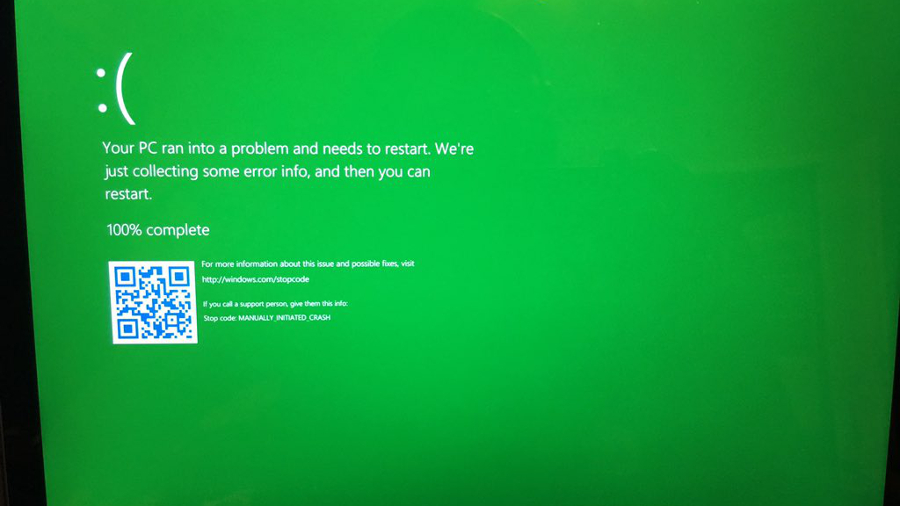Windows 10 gets a new colour scheme for when it crashes
Green is the new blue, at least for Windows Insiders

You’re doubtless familiar with the ‘blue screen of death’, which pops up when Windows totally hangs with a fatal error, but things with the BSOD are changing, as Microsoft has turned the famous blue colour a different shade – at least for those testing Windows 10.
Going forward, with preview builds of Windows 10, the crash screen will be green rather than blue, as spotted by one enterprising Twitter user in a leaked preview version of the OS (build 14997 – which has seen several revelations, including a new ‘Game Mode’ and the ability to delay Windows updates).
Chris123NT discovered the green screen of death, as it has now become for Windows testers, and Matthijs Hoekstra, Senior Program Manager for Windows Enterprise Developer Platform, confirmed that it was only for test builds of the OS.
In other words, it’s so Microsoft can easily see whether a crash is from a preview build – crashes in released versions of Windows still remain blue. And are likely to remain leaving you feeling blue, as well.
Colour us puzzled
Which brings us to the talking point that seems to have caused most of the chatter across the net regarding this change – why green? Typically, green is regarded as a ‘positive’ colour in that it means go ahead (with traffic lights), or that things are safe. Surely Microsoft should have gone with red if they were picking an alternative colour?
Although perhaps red is simply regarded as too overly alarming in nature to be used.
Hoekstra said that he had no idea why green was chosen. And he also hinted he’d received a slapped wrist due to his tweets on this matter…
Sign up to the TechRadar Pro newsletter to get all the top news, opinion, features and guidance your business needs to succeed!
This isn’t the only change Microsoft has made to its crash screen this year. Back in the spring, we first saw the introduction of QR codes to the blue screen of death, which you can scan with your phone to swiftly get more in-depth troubleshooting details on the problem at hand.
Image Credit: Chris123NT
Via: Betanews
Darren is a freelancer writing news and features for TechRadar (and occasionally T3) across a broad range of computing topics including CPUs, GPUs, various other hardware, VPNs, antivirus and more. He has written about tech for the best part of three decades, and writes books in his spare time (his debut novel - 'I Know What You Did Last Supper' - was published by Hachette UK in 2013).